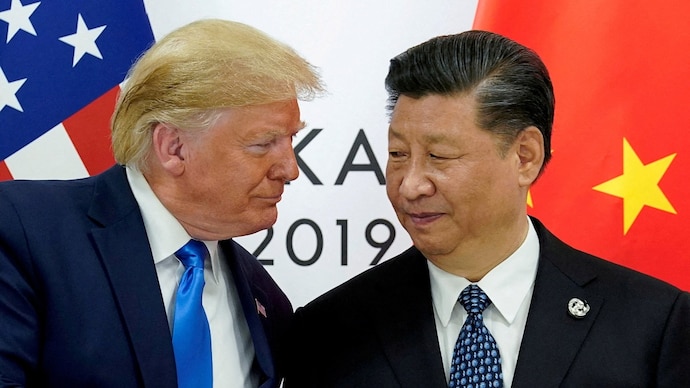
Even as he alluded to a potential trip to China later this year, US President donald trump threatened beijing on Monday that it must supply rare earth magnets or face tariffs of up to 200 percent.
He remarked, “They have to give us magnets,” alluding to China’s position as the world’s top supplier of rare earth elements, which are essential for magnets used in everything from the automobile to the defense industries.
“We have to charge them (a) 200 percent tax or whatever if they don’t provide us magnets. However, I don’t believe it will be an issue for us,” he continued.
The announcement came during Trump’s meeting with South Korean President Lee Jae Myung in washington, where he addressed reporters about the state of US-China relations and his recent conversations with Chinese President xi jinping.
“At some point, probably during this year or shortly thereafter, we’ll go to China,” Trump said. “We’re going to have a great relationship with China.”
Warming ties, but the threat of tariffs persists
Trump voiced optimism about ties with Beijing. “They have some cards. We have incredible cards, but I don’t want to play those cards. China would be destroyed if I played those cards,” he declared.
#WATCH | Washington DC | “Our relationship with China is going to be fantastic… They have some cards. We have incredible cards, but I don’t want to play those cards. If I play those cards, that would destroy China. I am not going to play those cards” says US President Donald pic. twitter.com/PDlNPkkmm2 — ANI (@ANI) August 25, 2025
The two biggest economies in the world strained their relationship earlier this year when they imposed harsh tariffs on one another’s goods, upsetting international supply networks. Tit-for-tat duties once reached triple digits, which caused several importers to halt shipments.
The issue has, however, subsided in recent months. Beijing and Washington agreed to lower tariffs, with China lowering its own to 10% and the US lowering its to 30%. This armistice helped calm market fears and provided businesses with short-term respite.
AT THE CENTER OF THE DISPUTE: RARE EARTHS
The trade friction still revolves around rare earth materials. Washington views these minerals, which are used in everything from fighter jets to smartphones, as a strategic vulnerability since Beijing dominates production.
Recently, both parties decided to postpone the introduction of increased taxes until November 10 by extending the tariff freeze for an additional ninety days. This halt implies that both countries are looking for additional time to reach an agreement.
In order to delay the introduction of higher taxes until November 10, the parties have agreed to prolong the tariff freeze for an additional ninety days. It appears from this pause that both countries are looking for additional time to reach an agreement.
For breaking news and live news updates, like us on Facebook or follow us on Twitter and Instagram. Read more on Latest World on thefoxdaily.com.





COMMENTS 0